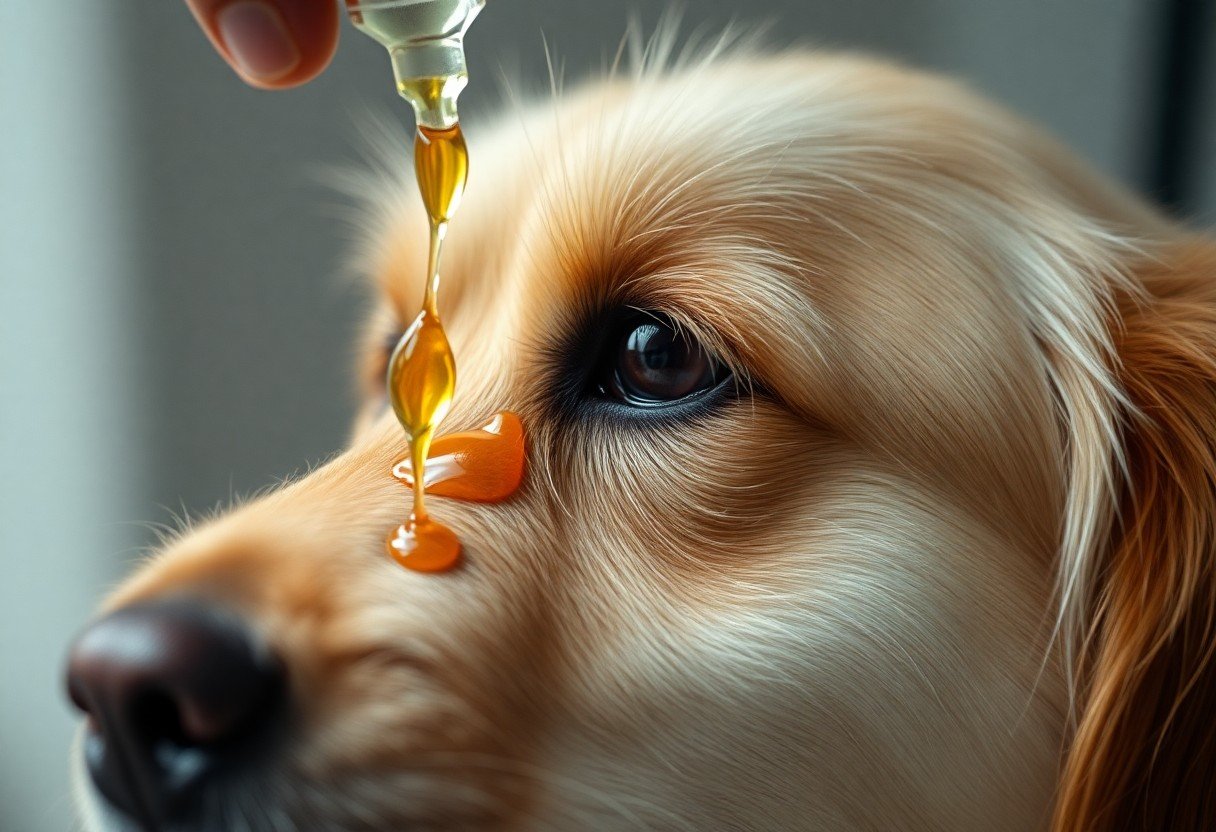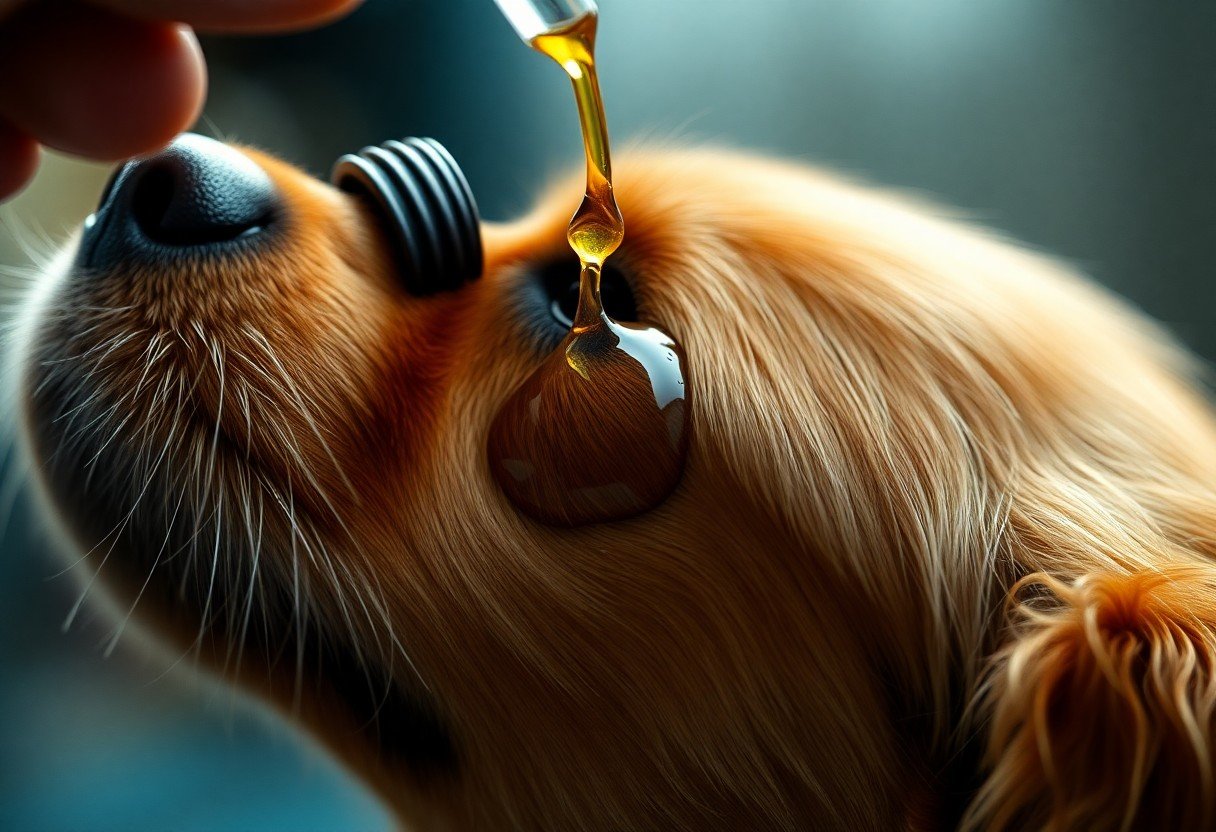Pet dandruff can be a frustrating issue that affects your furry friend’s comfort and your home’s cleanliness. If you’re tired of constantly cleaning up flakes from your pet’s coat, it’s time to discover the power of a specific oil that can soothe your pet’s skin and hydrate their fur. This simple remedy not only promotes a healthier coat but also reduces itchiness and irritation, helping your pet feel more comfortable. Say farewell to the unsightly mess of dandruff and hello to a happier, healthier pet!
Understanding Pet Dandruff
To effectively combat pet dandruff, it’s imperative to understand what it is. Pet dandruff, also known as seborrhea, manifests as flaky skin and can affect various animals, including dogs and cats. It occurs when your pet’s skin becomes dry or oily and results from a variety of conditions and environmental factors. Being informed about this issue can help you take timely action to ensure your furry friend’s well-being.
Causes of Pet Dandruff
The causes of pet dandruff can vary widely, ranging from dry skin and allergies to nutritional deficiencies and underlying health issues. Environmental factors such as low humidity and poor grooming practices may also contribute to the problem. Understanding these triggers allows you to create a targeted approach to manage and mitigate your pet’s dandruff effectively.
Importance of Addressing Dandruff in Pets
Below are several reasons why you should prioritize addressing dandruff in your pets. Ignoring this issue can lead to more significant skin problems and discomfort. Allergies, skin infections, and even behavioral issues may arise from persistent dandruff, impacting your pet’s overall quality of life.
Pets experiencing dandruff may suffer from itchiness or irritation, leading to constant scratching and discomfort. You may also notice secondary issues like redness or inflammation of the skin as a reaction to these flakes. Additionally, untreated dandruff can lead to a buildup of bacteria or fungi, increasing the risk of infections. By addressing dandruff early on, you can improve your pet’s skin health, reduce discomfort, and enhance their overall happiness. Taking action now will help maintain a healthy and thriving pet.
The Role of Oils in Pet Care
One of the simplest yet most effective ways to enhance your pet’s overall well-being is through the use of oils. Oils can provide moisturizing benefits, reduce allergies, and help with skin conditions like pet dandruff. By incorporating the right oils into your pet care routine, you can significantly improve the health of your furry friend. This is especially important as their skin and coat need proper nourishment to stay vibrant and healthy.
Types of Oils Beneficial for Pets
On your quest to improve your pet’s health, consider these beneficial oils:
- Coconut Oil – Moisturizes skin and reduces dandruff
- Olive Oil – Rich in antioxidants, promotes healthy coat
- Fish Oil – Supports heart and joint health
- Lavender Oil – Calms anxiety and soothes skin irritation
- Tea Tree Oil – Anti-fungal and antibacterial properties
This selection of oils can enhance your pet care regimen.
Safety Considerations When Using Oils
At the same time, it’s vital to practice safe usage of oils for your pets. Always consult with your veterinarian before introducing any new oil into your pet’s routine to ensure it’s suitable for their specific needs. Keep in mind that some oils can be toxic, particularly in large quantities or for certain breeds.
Beneficial oils come with their own set of important safety considerations. Always use pet-safe oils and be cautious with concentrations. Avoid oils like tea tree oil in high amounts, as they can be harmful. Monitor your pet for any adverse reactions after applying oils, and never apply them directly to areas where your pet might lick. By understanding the risks, you can ensure that your pet enjoys the positive effects of oils without any negative consequences.
The One Oil to Eliminate Pet Dandruff
Some pet owners struggle with annoying pet dandruff, which can lead to dry skin and discomfort for your furry friend. Fortunately, there’s one oil that stands out for its effectiveness in combating this issue: coconut oil. This natural wonder not only hydrates the skin but also helps to reduce flakiness and itchiness. With its antibacterial and antifungal properties, coconut oil provides a comprehensive solution for maintaining your pet’s skin health while giving you peace of mind.
Key Ingredients and Benefits
To restore your pet’s skin health, look for organic coconut oil as the main ingredient. Rich in fatty acids, it deeply moisturizes and nourishes the skin, promoting healing. The addition of vitamin E enhances skin elasticity, while lauric acid protects against harmful bacteria and fungi. Together, these components create a synergistic effect that alleviates dandruff and keeps your pet’s coat vibrant.
How to Apply the Oil Effectively
For optimal results, apply coconut oil directly to your pet’s skin without overdoing it. Start with a small amount, gently massaging it into the affected areas to ensure effective absorption. Allow the oil to sit for a while before bathing your pet to maximize its benefits.
Consequently, scheduling regular applications can significantly improve your pet’s skin condition. Make it a habit to apply coconut oil once a week to maintain moisture levels and prevent the return of dandruff. Use a soft cloth or your fingers to distribute the oil evenly, focusing on dry patches. If your pet experiences any adverse reactions, discontinue use and consult with your veterinarian to ensure a safe and healthy approach to skincare. With consistent care, you’ll see a noticeable improvement in your pet’s skin health and coat shine.

Additional Tips for Managing Pet Dandruff
After addressing the use of oil, you can enhance your efforts against pet dandruff with these strategies:
- Maintain a consistent grooming routine.
- Ensure your pet’s hydration is adequate.
- Choose high-quality pet food with crucial fatty acids.
- Regularly check for skin conditions or allergies.
This combination of practices will help keep dandruff at bay.
Diet and Nutrition Adjustments
Nutrition plays a significant role in managing your pet’s dandruff. Providing a well-balanced diet rich in omega-3 and omega-6 fatty acids can greatly improve skin health. Foods containing these crucial nutrients assist in moisture retention and reduce the likelihood of flaking skin. Always consult with your veterinarian before making any substantial changes to your pet’s diet for optimal results.
Regular Grooming and Bathing Practices
To effectively manage pet dandruff, implement a structured grooming schedule. Regular brushing helps remove loose fur and dead skin, promoting healthier skin and coat. Furthermore, scheduling baths with gentle, moisturizing shampoos can maintain your pet’s skin health. Aim to bathe your pet every 4-6 weeks, or as your veterinarian recommends.
Plus, ensure you use high-quality grooming tools to minimize skin irritation. Maintaining a consistent bathing schedule helps remove excess dirt and oil that can exacerbate dandruff. Monitor your pet closely for any signs of irritation or allergic reactions to grooming products. If you notice increased scratching or redness, discontinue use and consult your veterinarian. This proactive approach will keep your pet’s coat healthy and free from dandruff.
When to Consult a Veterinarian
Now that you understand how to manage pet dandruff, it’s important to recognize when you need professional help. If your dog’s dandruff persists despite your efforts or is accompanied by other symptoms like excessive scratching, hair loss, or an unusual odor, consult a veterinarian. For more insights on Dog Dandruff, your vet can provide a thorough examination and suggest an appropriate treatment plan tailored to your pet’s needs.
Signs of Serious Skin Issues
Before attempting any treatments, be vigilant for signs of serious skin issues, such as open sores, swelling, or dark patches on the skin. These symptoms can indicate infections or allergies that require immediate veterinary attention. Addressing these matters promptly can lead to faster recovery for your furry friend.
Alternative Treatments
Behind your dog’s dandruff, there may be alternative treatments worth exploring if conventional methods fall short. Natural remedies such as coconut oil or oatmeal baths can help soothe itchy skin and reduce flakiness. Additionally, ensuring that your dog is on a high-quality diet might improve their skin health over time.
The use of alternative treatments can offer a holistic approach to managing pet dandruff. Incorporating natural solutions like coconut oil not only hydrates the skin but also provides antimicrobial properties that can help combat infections. Additionally, regular swims in oatmeal baths can relieve itching and restore moisture. Always monitor your dog’s response to alternative treatments, and consult your vet if you observe any negative reactions or if symptoms persist.
Testimonials and Success Stories
Not only have countless pet owners discovered the power of this oil, but many have shared their remarkable transformations. You can find stories from those who once faced the discomfort of embarrassing flakes and itching, only to witness their pets’ soft, healthy coats return after consistent use. With just a few drops, your furry friend can experience relief and regain their confidence. These testimonials highlight the positive impact you can achieve and reaffirm that your journey to a dandruff-free pet is certainly within reach.
Conclusion
From above, you can see how incorporating this specific oil into your pet care routine can lead to a significant reduction in pet dandruff. By understanding the benefits and application methods of this oil, you can effectively improve your pet’s skin health and comfort. Regular use can not only alleviate the visible symptoms of dandruff but also promote a healthier coat overall. Invest a little time and effort, and your furry friend will thank you with a happier, healthier appearance.
FAQ
Q: What is the main ingredient in the oil that helps combat pet dandruff?
A: The primary ingredient in the oil designed to eliminate pet dandruff is typically a blend of natural oils, such as coconut oil and jojoba oil. These oils are known for their moisturizing properties and ability to soothe dry skin, which is a common cause of dandruff in pets. By hydrating the skin and promoting a healthy coat, this oil can significantly reduce flakes and improve overall skin condition.
Q: How often should I apply this oil to my pet’s coat?
A: It is generally recommended to apply the oil once or twice a week, depending on your pet’s skin condition. For pets with severe dandruff, more frequent applications may be beneficial. Always consult your veterinarian for personalized guidance based on your pet’s specific needs, and be sure to massage the oil into the skin for better absorption and effectiveness.
Q: Are there any side effects associated with using this oil on my pet?
A: Most natural oils are safe for pets; however, it is necessary to check for any signs of irritation or allergic reactions after application. If your pet shows any adverse reactions, such as redness, itching, or discomfort, discontinue use immediately and consult your veterinarian. Additionally, avoid getting the oil into your pet’s eyes or mouth, and ensure it is suitable for the type of animal you have.

